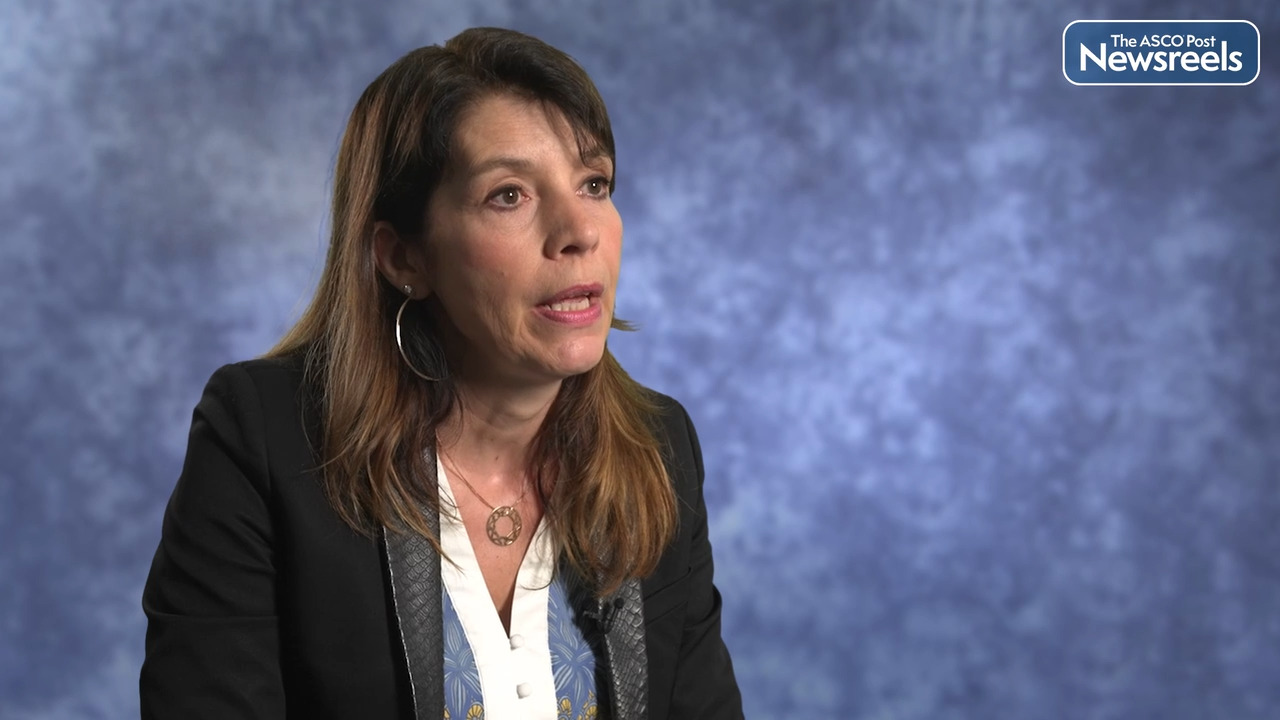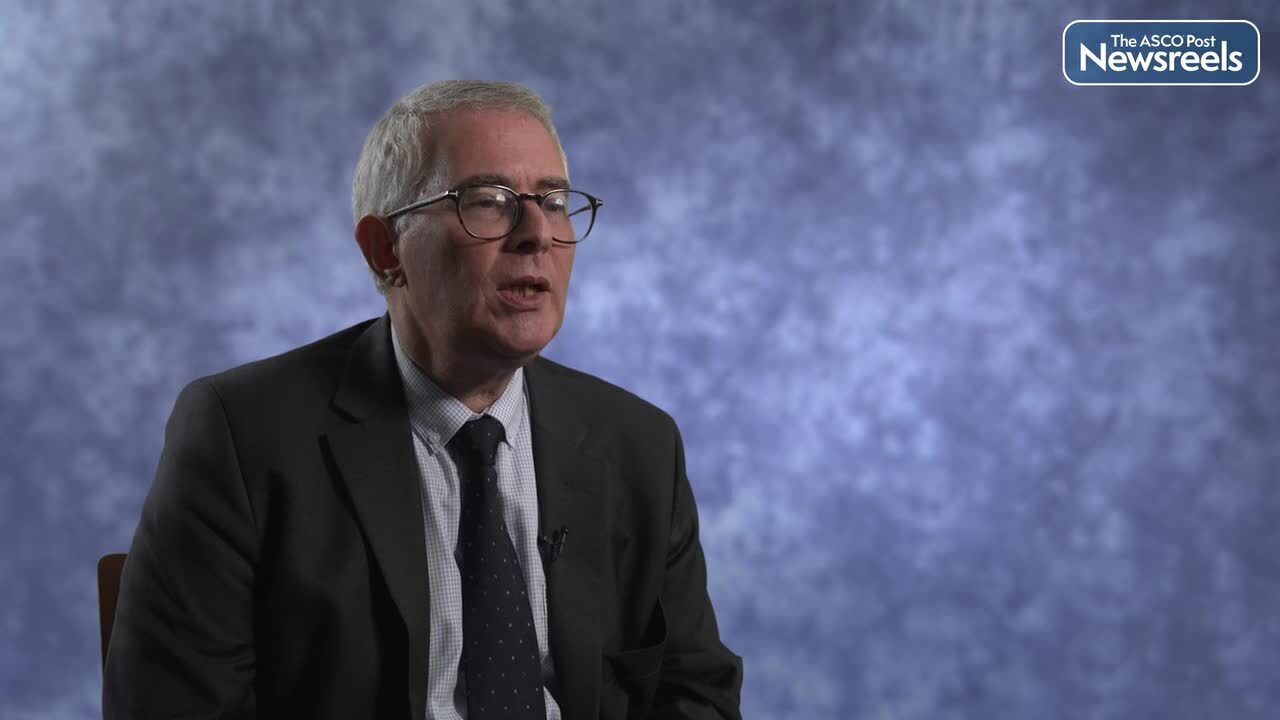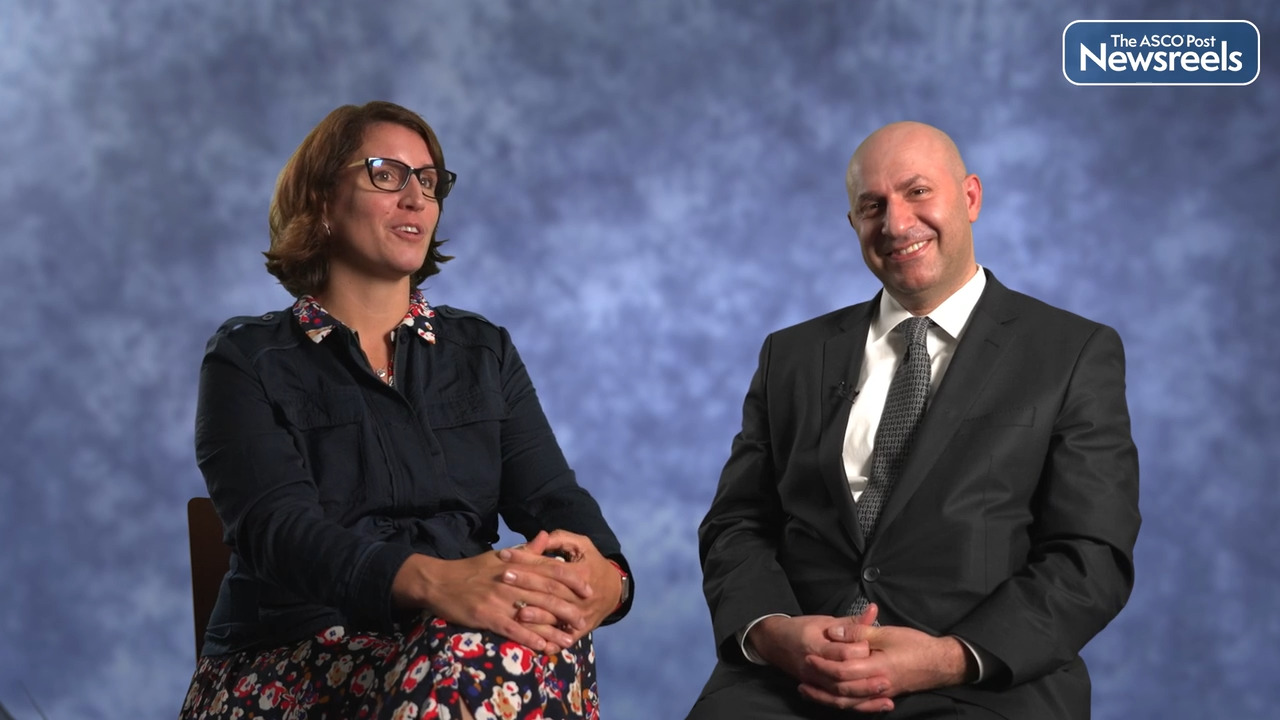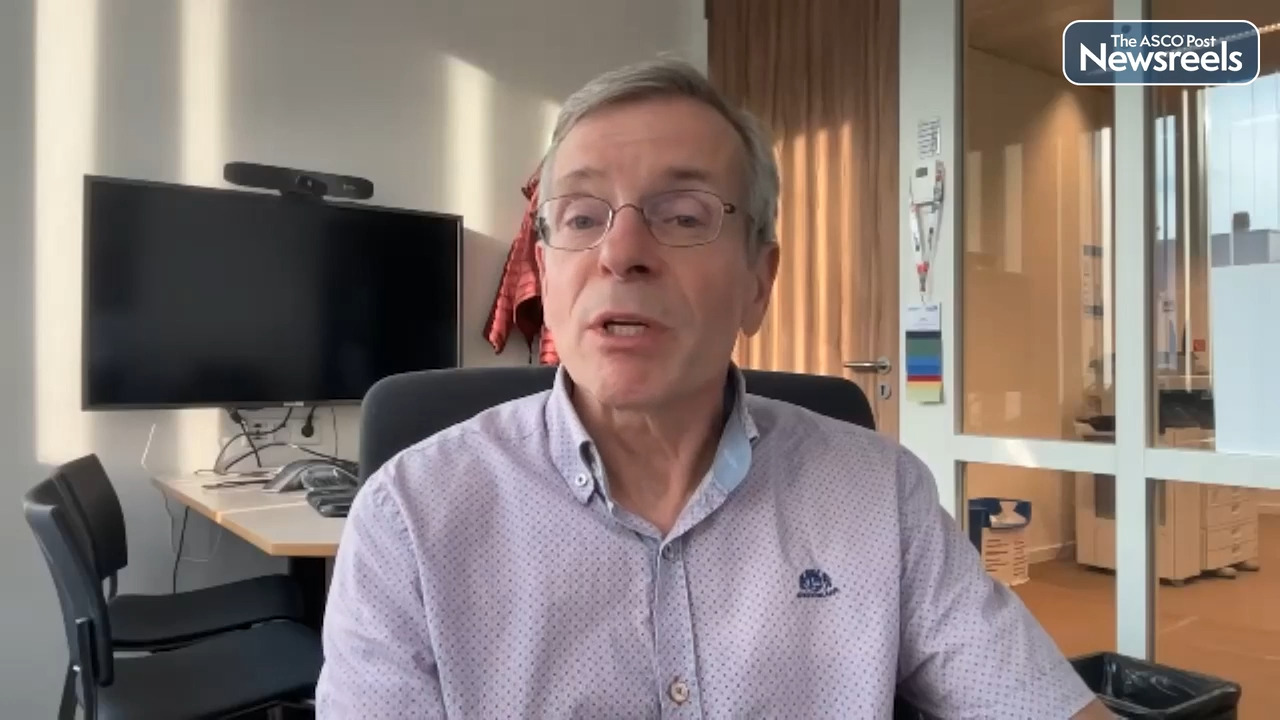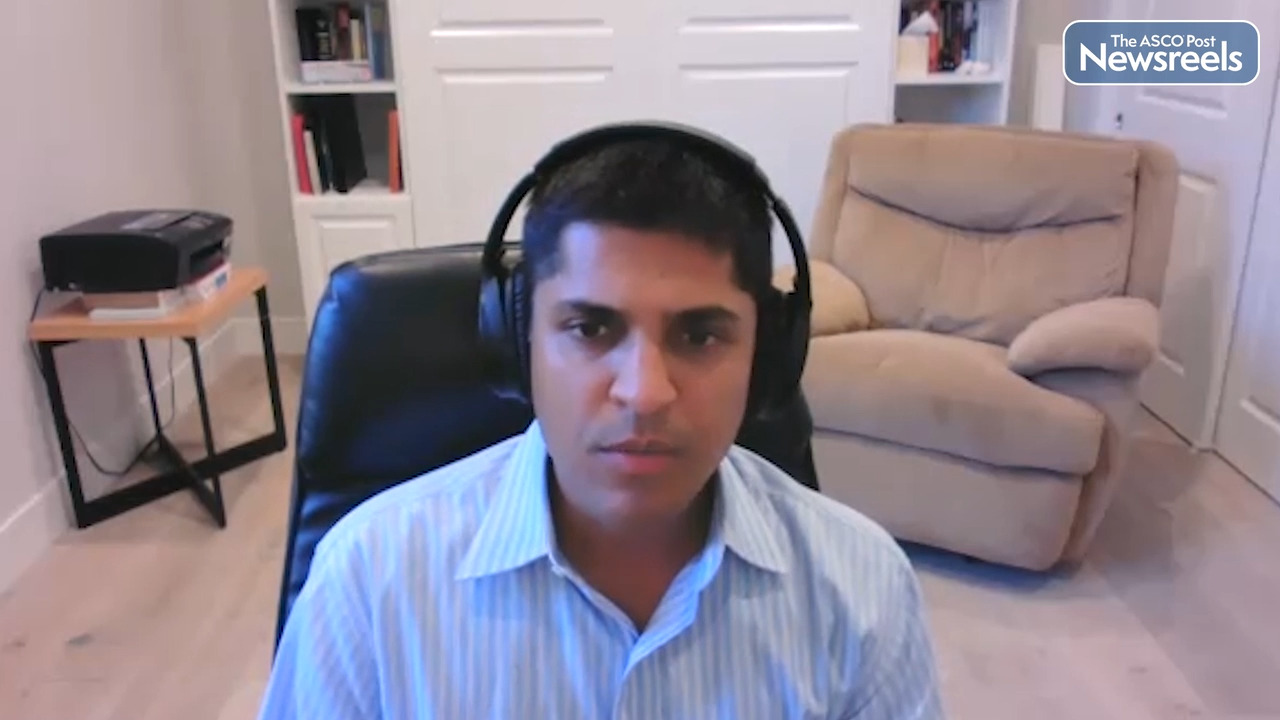Myriam Chalabi, MD, PhD, on Colon Cancer: New Findings on Neoadjuvant Immune Checkpoint Inhibition
ESMO Congress 2022
Myriam Chalabi, MD, PhD, of The Netherlands Cancer Institute, discusses data from the NICHE-2 study, which confirms previously reported pathologic responses to short-term neoadjuvant nivolumab plus ipilimumab in patients with locally advanced mismatch repair–deficient colon cancer. Survival data suggest neoadjuvant immunotherapy may become standard of care and allow further exploration of organ-sparing approaches. (Abstract LBA7).
The ASCO Post Staff
Christelle de la Fouchardiere, MD, of France’s Centre Léon Bérard, discusses phase III findings from the PRODIGE 65–UCGI 36–GEMPAX UNICANCER study, which evaluated whether the combination of gemcitabine and paclitaxel improves overall survival compared with gemcitabine alone in patients with metastatic pancreatic ductal adenocarcinoma after FOLFIRINOX failure or intolerance (Abstract LBA60).
The ASCO Post Staff
Gérard Zalcman, MD, PhD, of France’s Bichat-Claude Bernard Hospital, Assistance Publique–Hôpitaux de Paris, discusses phase III results from the IFCT-1701 trial, which explored the questions of whether to administer nivolumab plus ipilimumab for 6 months or whether to prolong the treatment in patients with advanced non–small cell lung cancer (Abstract 972O).
The ASCO Post Staff
Toni K. Choueiri, MD, of the Dana-Farber Cancer Institute, and Laurence Albiges, MD, PhD, of France’s Gustave Roussy Cancer Centre, discuss results from two important trials presented at ESMO 2022: Cohort 1 of the LITESPARK-003 study of belzutifan plus cabozantinib as first-line treatment of advanced renal cell carcinoma (RCC), and the KEYNOTE-B61 study of pembrolizumab plus lenvatinib as first-line treatment for non–clear cell RCC (Abstracts 1447O and 1448O).
The ASCO Post Staff
John B.A.G. Haanen, MD, PhD, of The Netherlands Cancer Institute, discusses recent phase III findings, which show that tumor-infiltrating lymphocytes (TILs) improve progression-free survival compared with ipilimumab by 50% in patients with advanced melanoma after not responding to anti–PD-1 treatment. Around 50% of TIL-treated patients had a response, and 20% had a complete response (Abstract LBA3).
The ASCO Post Staff
Rahul Aggarwal, MD, of the University of California, San Francisco, discusses recent data from the PRESTO study, which showed that apalutamide plus androgen-deprivation therapy (ADT) for 12 months significantly prolonged PSA progression-free survival compared with ADT alone in patients with biochemically recurrent prostate cancer. These results provide support for the intensification of ADT in this setting. (Abstract LBA63).
